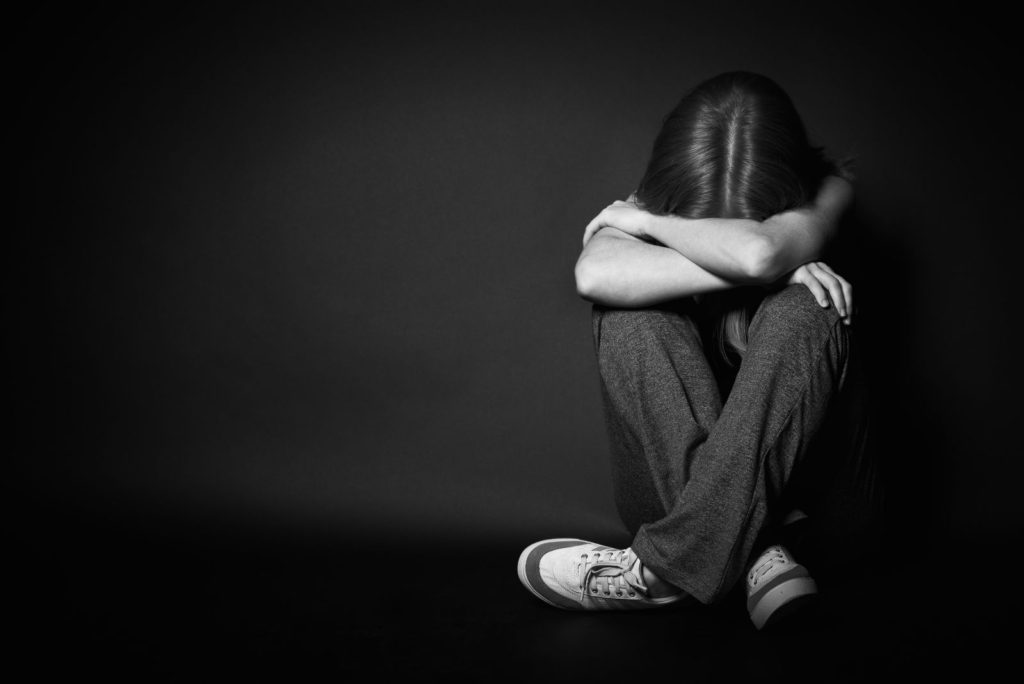Mental Health & Addiction
Mental Health
Mental health disorders disrupt a person’s thinking, feeling, mood, ability to relate to others, and daily functioning, resulting in a diminished capacity for coping with the ordinary demands of life. According to Chinese Medical theory, mental illness occurs when there is imbalance within the body. Imbalance comes from an excess or deficiency of yin and yang that disrupts the flow of Qi or energy through the body.
Oriental Medicine does not recognize any mental disorder as one particular syndrome. Instead, it treats the specific symptoms that are unique to each individual using a variety of techniques such as acupuncture, herbal medicine, bodywork, lifestyle/dietary recommendations and physical exercises to restore imbalances found in the body.
Since the early seventies, studies around the globe have suggested that treating mental health disorders with acupuncture has a positive and holistic effect on depressed patients, particularly when used in combination with psychotherapy and herbal treatments. The study findings suggest that even using acupuncture alone could be as effective as other types of treatments for relieving depression symptoms typically used in Western medicine, such as psychotherapy and drugs.
Addiction
Addictions present themselves in a variety of ways. For one person, a glass of wine with dinner is the perfect amount, while another may not be able to stop until the entire bottle is finished. For some, inhaling tobacco is torturous on the lungs, in contrast to others who find insatiable pleasure and satisfaction from smoking cigarettes. Fortunately, acupuncture and Oriental medicine is able to both address the symptoms associated with addictions & also mitigate the psychological imbalances that have caused dependence in the first place.
Addictions are best managed when we work to meet the unique needs of each individual. Acupuncture and Oriental medicine are an excellent addition to any treatment plan as they help the body restore balance, treat the root of the disorder & also diminish symptoms. Some common addiction problems that we help with acupuncture treatment are:
- Smoking Cessation
- Alcohol
- OCD
- Drugs
How We Help With...
Sleep deprivation or insomnia may not seem to be a cause for alarm, but the consequences of this condition can be very real. Snoozing less at night can cause daytime drowsiness, diminished cognitive functions, a drop in immunity, and may potentially lead to other medical conditions. The symptoms of sleep deprivation happen for many reasons. For some, it comes about due to outside circumstances. Other times, there may be pre-existing medical conditions that interfere with sleep. Insomnia and sleep apnea are two big culprits that fall in this category.
The good news is that acupuncture and Oriental medicine can help in most of these cases. Located on the back of the head, near the earlobes, is an acupuncture point that specifically addresses sleep issues. When we utilize this point, it serves to induce a restorative, peaceful sleep. Additionally, this point has the ability to relieve headaches and soothe an anxious mind. Its versatility allows it to be part of an acupuncture treatment for many sufferers of sleep deprivation.
A growing number of people are seeking alternatives to antidepressant medications, and recent research suggests that acupuncture is a promising option.
One new study found the traditional Chinese practice to be as effective as antidepressants, and a different study found that acupuncture may actually help to treat the medications’ side effects. A study published last fall in the Journal of Alternative and Complementary Medicine found that electroacupuncture—in which a mild electric current is transmitted through the needles—was just as effective as fluoxetine (the generic name of Prozac) in reducing symptoms of depression.
The list of things that can stir up our anxieties is long and varied. Most anxieties are healthy responses to daily activity or new situations; however, random or excessive anxiety can be debilitating. Not only does quality of life take a nose-dive, but physical symptoms may arise—insomnia, bowel problems, and body twitches are just a few examples.
Acupuncture provides relief from stressors that cause anxiety along whilst managing the symptoms and related health issues that may develop as a result. The calming nature of acupuncture decreases the heart rate, lowers blood pressure and relaxes the muscles. Oriental medicine tools such as Tai Chi, meditation, and dietary therapy may also be used to manage anxiety.
As a normal part of life, stress enables us to get things done. However, if left unmanaged, stress can lead to emotional, psychological, and even physical problems. Stress is often the cause of illness and the deterioration of health. Finding a release valve for your stress can help you stay healthy.
According to Oriental medicine, stress, frustration, and unresolved anger can play a part in throwing the immune system off and allowing pathogens to affect the body. Through acupuncture, these energy blockages can be addressed. Acupuncture points can help energy flow smoothly and alleviate not only the symptoms of stress and anxiety, but also the stress and anxiety itself.
Numerous studies have demonstrated the substantial benefits of acupuncture in the treatment of stress. Acupuncture improves circulation of blood throughout the body, which oxygenates the tissues and cycles out cortisol and other waste chemicals. The calming nature of acupuncture also decreases heart rate, lowers blood pressure and relaxes the muscles.
Additional Conditions We Treat

PTSD
Chronic Fatigue Syndrome
Panic Attacks
Bipolar Disorder
Source: Acufinder (Mental Health, Insomnia, Stress & Anxiety)